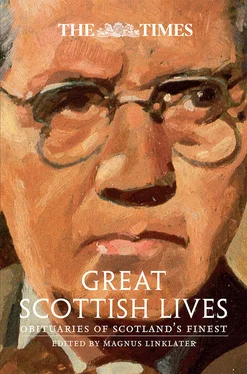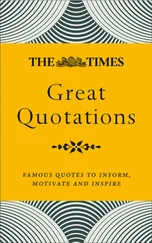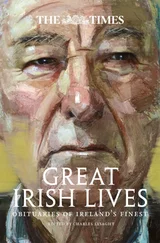It is often said that journalism is the first draft of history. If that is the case, then surely the obituary is the first sketch of those who shaped it.
Sir Walter Scott
‘The greatest genius and most popular writer of his age’
25 September 1832
Sir Walter Scott, the greatest genius and most popular writer of his nation and his age, expired at Abbotsford on Friday last − a man, not more admired or admirable for the inventive powers of his mind than beloved and respected for the kindness of his disposition and the manly simplicity of his character. After an absence of some months in Italy and other parts of the continent, which, it was fondly but vainly imagined by his friends, might restore his health − broken down by excess of mental labour − he returned about Midsummer last, with an instinct of patriotism, to lay his bones in his native land. On his way home, in descending the Rhine to embark for England, he suffered at Nimeguen, in Holland, a third time, a paralytic attack, which, but for the surgical skill and promptitude of his servant, must have been instantly fatal − and from which he never recovered sufficiently to be sensible of that zealous admiration with which a grateful country was desirous of honouring his name, and paying homage to his setting star.
It is almost needless to say, that though the death of this illustrious man has been long expected, no loss could be more deeply felt over the whole republic of letters, and none could excite more general or unmixed regret. His name and works are not only British but European − not only European but universal; for wherever there is a reading public − a literature − or a printing press, in any part of the world, Sir Walter must be regarded as a familiar household word, and gratefully admitted as a contributor to intellectual enjoyment.
Of a man so universally known and admired − of a writer, who by works of imagination, both in prose and verse, has added so much to the stores of intellectual instruction and delight − of an author who, in his own time, has compelled, by the force of his genius, and the extent of his literary benefactions, a unanimity of grateful applause which generally only death (the destroyer of envy) can ensure − it would be superfluous, and perhaps impertinent in us, to speak in this short announcement, as critics, or biographers. The illustrious author of Waverley, and twenty other historical romances displaying the spirit of Waverley, of The Lay of the Last Minstrel, and six other greater lays than ever ancient minstrel sung − has latterly been exempted from the proverbial injustice inflicted on contemporary genius; and has been able to realise the most ample visions of posthumous celebrity. He does not, therefore, require any vindication of his fame, or any display of his literary merits, at our hands.
Our object in alluding to his death and character is of a higher land than that of literary criticism. Our object is to speak of him as a tolerant, candid, and kind-hearted member of that great republic of letters, of which he would willingly have been elected President had that republic acquired a settled organisation − to recommend his personal simplicity of character and total absence of literary affectation, to the imitation of those who, though they cannot pretend to his genius, think themselves exempted − on the ground of their inferior powers − from the common restraints and customs of society, to which he always submitted − and to bestow its due need of praise on that noble and manly spirit of independence which led him to the immense labours of the last years of his life, that he might disengage himself from debts and difficulties under which a less resolute mind must have sunk, or from which a less honest one would have sought relief by leaning on those friends and patrons who would have been proud to have offered their aid. The republication of his novels, with notes and illustrations, was perhaps one of the greatest literary enterprises known in this country; and the success of the work, if it has not enabled him to leave much to his children, has at least satisfied the demands of his creditors. His indifference to the attacks of envy and malignity with which he was assailed in the earlier part of his career was as remarkable as his candid appreciation of the merits, and his zealous desire to promote the fame, of his friends. The garland which he threw on the grave of Byron, and the zeal with which be defended his personal character, when it evinced some courage to rebut the charges brought against his memory, will never be forgotten by the admirers of misguided genius.
Though Sir Walter Scott was an unflinching Tory all his life, his politics never degenerated into faction, nor did they ever interfere with his literary candour or his private friendships. Indeed, his party principles seemed to have been rather formed from his early connexions or his poetical predilections, than adopted for ambitious objects or even selected after mature examination.
But one distinguishing characteristic of this great author’s mind and feelings deserves, even in the shortest allusion to his memory, to be mentioned as having given a colour to all his works − we mean his love of country − his devoted attachment to the land of his birth, and the scenes of his youth − his warm sympathy in every thing that interested his nation, and the unceasing application of his industry and imagination to illustrate its history or to celebrate its exploits. From the Lay of the Last Minstrel, or the border ballads, to the last lines which he wrote, he showed a complete and entire devotion to his country. His works, both of poetry and prose, are impregnated with this feeling, and are marked by the celebration of successive portions of its wild scenery, or of separate periods of its romantic annals. Hence his friends could often trace his residence, or the course of his reading, for periods anterior to the publication of his most popular works, in the pages of his glowing narrative or graphic description. Hence the Lady of the Lake sent crowds of visitors to the mountains of Scotland, who would never have thought of such a pilgrimage unless led by the desire to compare the scenery with the poem. No poet or author since the days of Homer was ever so completely a domestic observer, or a national writer, and probably none has ever conferred more lasting celebrity on the scenes which he describes. The border wars − the lawless violence of the Highland clans − the romantic superstitions of the dark ages, with their lingering remains in Scotland, the state of manners at every period of his country’s annals, the scene of any remarkable event are all to be found in his pages, and scarcely a mountain or promontory “rears its head unsung” from Tweed to John o’Groat’s.
The patriotism of Sir Walter Scott, though sometimes tinged with party, was always as warm as such poetical feelings could render it. Hence two or three of the most spirited of his lyrical pieces were written on the threatened invasion by Napoleon, and we need not cite his enthusiastic sympathy in the fame of his country, evinced in Waterloo and Don Roderick. His mind disdained that pretended enlargement, but real narrowness of spirit, which affects to consider all lands as alike, and would be ashamed to show any predilections for home.
But, as our object is not either criticism or biography, we must conclude these hasty remarks by referring for an account of Sir Walter Scott’s publications to the short article which we have extracted from the Globe. He had abandoned for nearly 20 years the cultivation of poetry, in which he was first distinguished, for the composition of his historical novels: he had left thus a most respectable property on Parnassus to descend into a more fertile spot below. Thence he has given to the world twenty works which will communicate delight, and extend his fame to all ages. The enchanter’s wand is now broken, and his “magic garment plucked off;” but the spirits which this Prospero of romance has “called up,” and placed in these noble productions, will last as long as the language in which they express themselves.
Читать дальше












